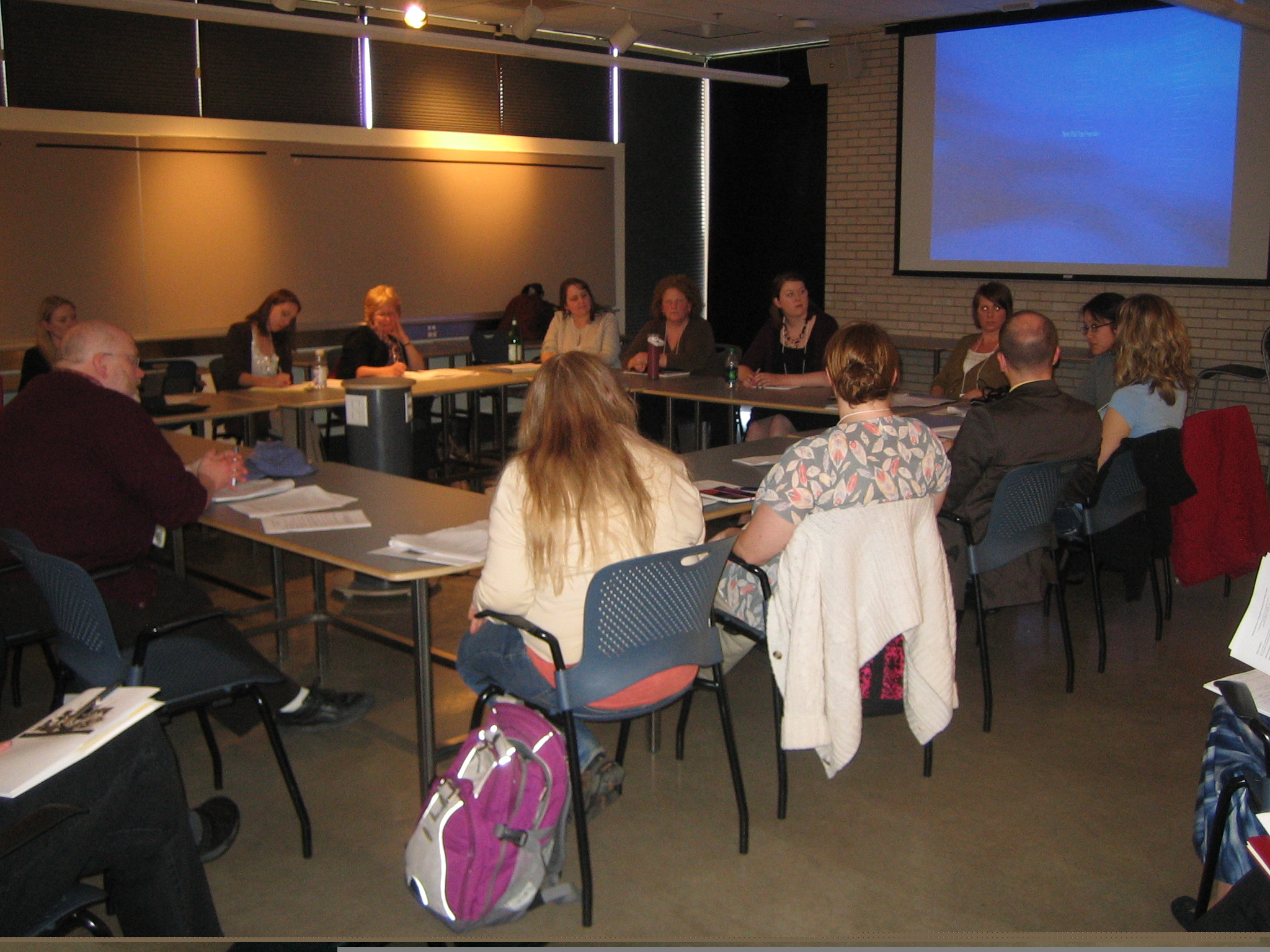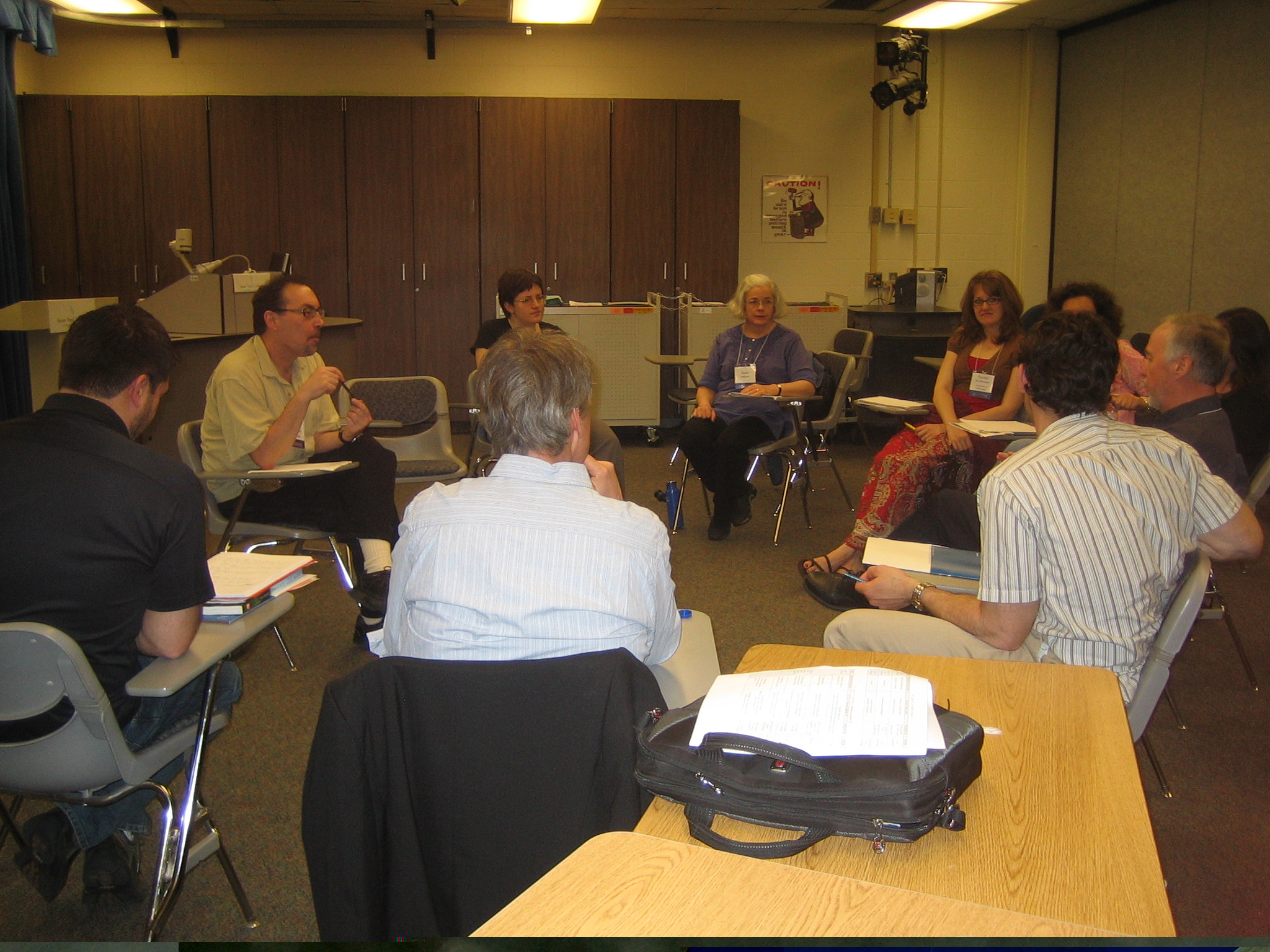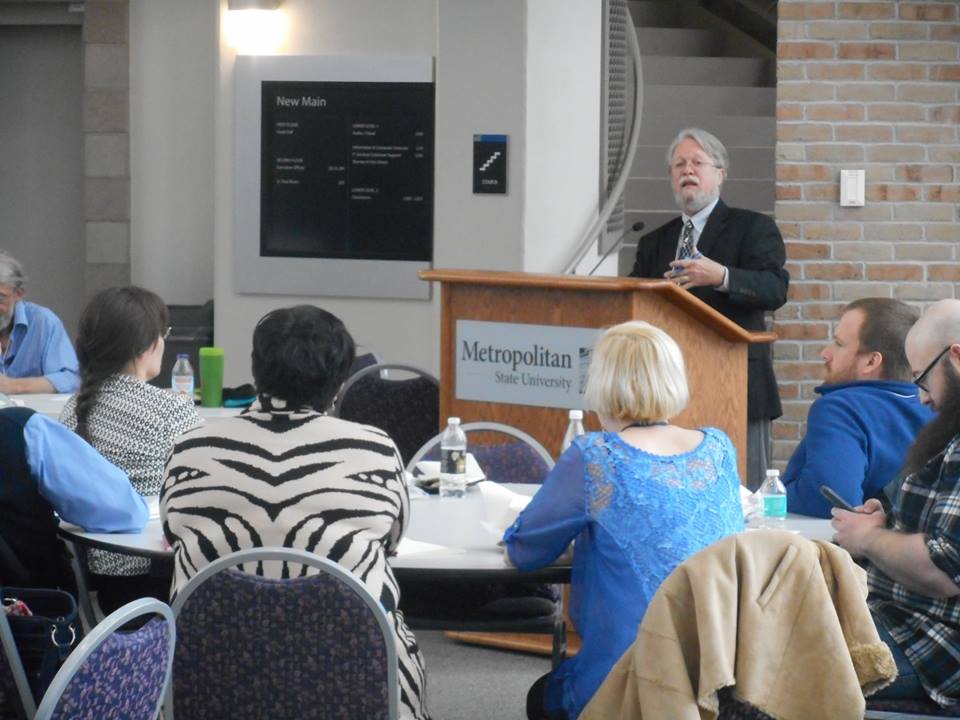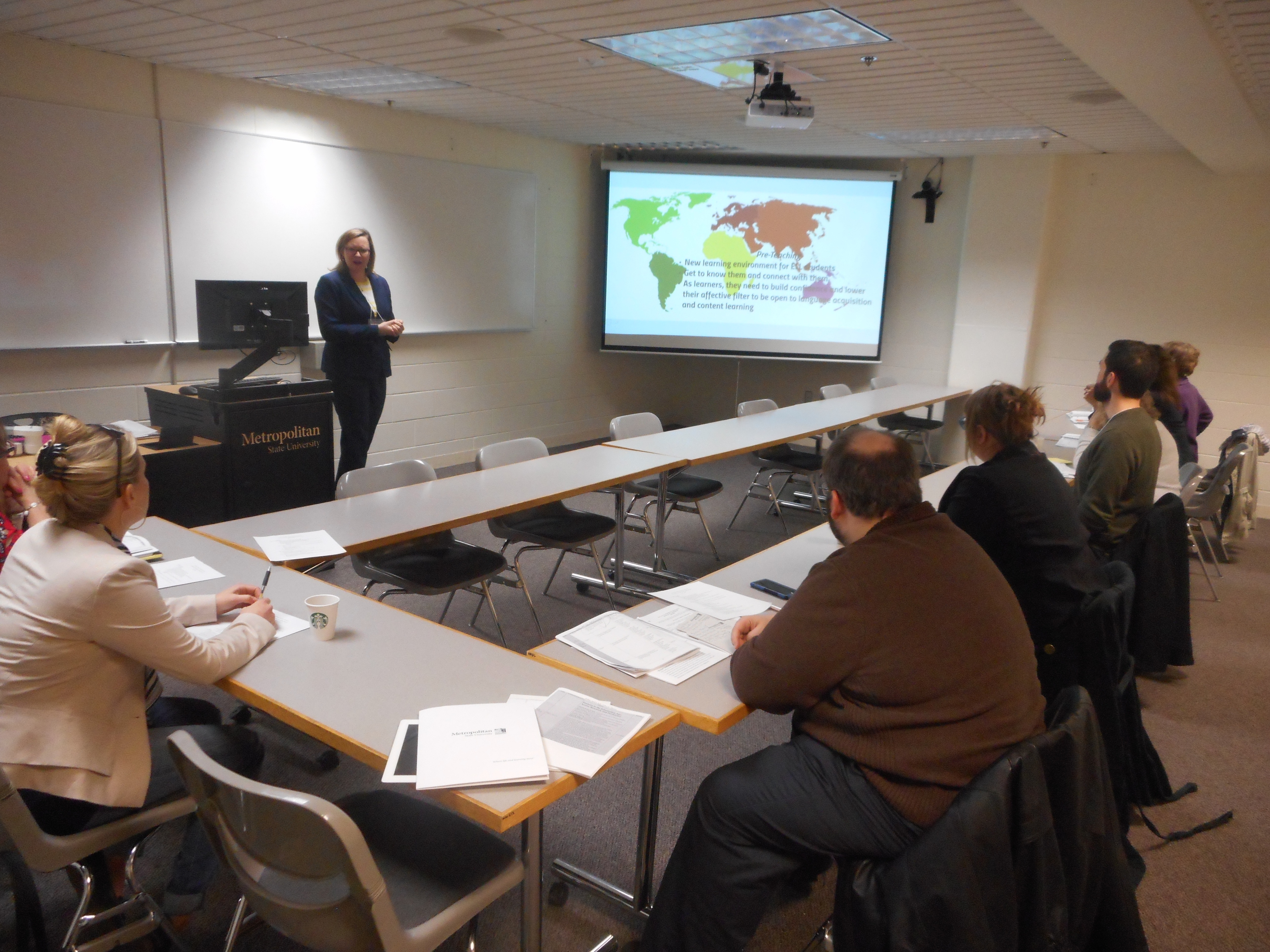|
“MnWE News”
Winter Issue
January-February
2020
Next Conference:
“Civic
Engagement
through 21st
Century
Literacies”
Minnesota State
University-Mankato,
Fri.-Sat., March
20-21, 2020
View previous
issues.
In this issue:
1.
CONFERENCE
PROPOSALS:
DEADLINE EXT. TO
JAN. 26
2. WHAT
WILL THE
CONFERENCE
OFFER?
3. CONF.: NAT’L. SCENIC BYWAY; DAKOTA-U.S. WAR &
MASS HANGING
4. ALSO IN
MANKATO
5. LIST OF
FREE TEACHING
E-LETTERS
(in each issue)
6. ABOUT
MNWE
(in each issue)
If you are new
to our listserv,
welcome!
We never share
your address,
and you may
always
unsubscribe at
the bottom of
any email.
If you are a
long-term member
of this
listserv, thank
you for your
continued
participation.
Our listserv
emails go
to about
3000 English,
Writing, and
related Upper
Midwest faculty.
If you are the
head of a
program or
department,
please consider
forwarding this
email to your
graduate
students or
tutors. If you
did not receive
this email
directly
and would like
to join, send a
request to the
editor at
richard at
jewell dot net.
We suggest you
send a permanent
email address.
Also email us
for information
on joining our
meetings
five
Fridays/year at
UMN and by Skype.
1. PLEASE SEND
YOUR PROPOSAL BY
JAN. 26 (EXT.
DEADLINE)
We would
enjoy seeing
your proposal at
www.MnWE.org
for our next
annual MnWE
Conference in
Mankato,
Minnesota (south
central Minn.)
March 20-21 at
our largest
state
university,
Minnesota
State-Mankato.
Your proposal
only need be
50-100 words,
and your
presentation may
be in rough
outline form: in
fact, we do
not want you
to read from a
paper but
rather, using an
notes of your
choice, engage a
small group,
your attendees,
by offering your
ideas, thoughts,
and experiences
and then asking
them for theirs.
You may present
on any general
topic relating
to our
disciplines. We
accept proposals
from everyone in
our fields from
full professors
to teachers of
English/writing
in the high
schools,
adjuncts,
graduate
students, and
undergraduate
majors.
If you
wish, you may
present
specifically on
our theme for
the conference, “Civic
Engagement
through 21st
Century
Literacies.” Our theme calls us to reflect on our mission of educating both
writers and
readers of texts
that, we hope,
show civic
engagement with
the world beyond
the classroom.
In fact, our
functioning
democracy
depends on our
textual
functioning–our
literacies–whether
next door or in
the wider
world. How can
our teaching be
adapted to meet
the needs of
21st century
learners who are
active
participants and
agents of
change? How do
our disciplines
influence our
approach to
these
questions? And
how do we
understand the
relationship
between courses,
politics, civic
duty, and
conscience?
These
questions have
become
dramatically
more important
as our country
deals with
constitutional
issues and as we
move into an
election year.
What should
students’–and
our own–civic
responsibilities
be? Let us know
what you
propose–or join
us at our
conference to
discover what
others
present–regarding
these urgent and
pressing issues.
For more details
on our theme and
how to propose
an individual or
group session,
visit
www.MnWE.org
. Most proposals
will be
accepted.
---
2. WHAT WILL THE
CONFERENCE
OFFER?
Our
2020 Conference
in Mankato is
two full days,
Fri.-Sat., March
20-21, starting
with a morning
plenary panel on
the theme each
day, breakout
sessions by
individuals and
groups, and a
new keynote each
lunch. After
lunch are more
breakouts.
Evenings, join
us for Friday’s
Happy Hour or
either or both
group evening
dinners (self
pay) at Mankato
restaurants.
Our
first keynote
speaker, on
Friday, is
dynamic
presenter
Beth Godbee,
an educator,
writer,
entrepreneur,
and former
professor whose
research addresses
matters of
social, racial,
and
environmental
justice; power,
agency, and
rights; and
relational
communication.
Her presentation
is “Breaking
Civil Discourse:
Cultivating
Productive and
Receptive
Literacies for
Responsible
(Response-Able)
Engagement.”
As an
educator, Beth
believes we
can’t just think our
way out of the
incredible
injustices,
dehumanization,
and wrongdoing
that
characterize
everyday life.
We must feel and act,
too.
Beth has been
a university English faculty professor, K-12 teacher; community
literacy
instructor;
writing center
consultant;
writing program
administrator;
and researcher
in composition,
rhetoric, and
literacy
studies. She
will
problematize
“civic
engagement” and
help us consider
how literacy
education and
justice can be
developed in an
era when,
unfortunately,
new civil
discourse and
related
constructs of
citizenship and
national borders
provide
justifications
for excluding
and dehumanizing
people.
Beth now
is a Washington,
D.C. independent
teacher and
trainer whose
Ph.D. in
composition and
rhetoric is from
the University
of
Wisconsin-Madison.
She was an
Associate
Professor in
English (Writing
Studies) at
Marquette
University, and
she
certification as
a secondary
school teacher.
Our
second keynoter,
on Saturday, is
one of
Minnesota’s top
literary
authors, Ed
Bok Lee. Ed
will speak on “Yet
Another Other:
Connecting
Issues of
Immigration and
the Environment.”
Ed is
the son of North
and South Korean
emigrants. His
mother
originally was a
refugee from
what is now
North Korea; his
father was
raised during
the Japanese
colonial period
and Korean War
in what is now
South Korea. Ed
grew up in South
Korea, North
Dakota, and
Minnesota. His
honors for his
poetry and other
works include
the prestigious
American Book
Award, the
Minnesota Book
Award, an Asian
American
Literary Award
(Members’
Choice), and a
PEN/Open Book
Award.
Currently
he is an
Associate
Professor in
Fine Arts at
Metropolitan
State
University. In
addition, for
two decades he
has taught in
programs for
youth,
communities of
color, and the
incarcerated. Ed
will read from
some of his
creative works
and talk about
his own journey
to civic
literacy as an
immigrant, and
how immigration
and
environmental
issues are
related.
---
MnWE keynoters’
page:
www.mnweconference.com/keynotes-
and-plenaries.html
Beth Godbee:
https://heart-head-hands.com
Ed Bok Lee:
https://edboklee.com
---
3. CONF.: NAT’L.
SCENIC BYWAY;
DAKOTA-U.S. WAR
& HANGING
The drive
to and from
Mankato can be a
special tour in
itself. You can
take the
Minnesota River
Valley National
Scenic Byway
in two different
directions, one
part between the
South Dakota
border and
southeast down
the river, or
another part
southwest from
the Twin Cities
between Belle
Plaine and
Mankato). The
drive highlights
a river
extremely
important in the
settlement of
the Minnesota
plains, and also
of vital
importance to
the Dakota
Indians. You can
allow time for
stopping points
with close
sights of the
River, plaques,
and interpretive
centers, or you
simply can
follow the
National Scenic
Byway for its
beautiful views.
An
important
visitor
opportunity
related to our
conference theme
is the
nationally
significant
1862 hanging of
38 Dakota Indian
warriors,
the largest U.S.
mass execution.
You can take a
self-guided tour
at thirty-three
sites, each with
interpretation.
Prefacing
the execution,
ordered by
President
Lincoln, the
five-week
Dakota-U.S. War
of 1862 saw an
early major
defeat of U.S.
militias by an
Indian army,
leading to other
battles and
defeat of the
warriors. On
record, over 400
white settlers
and soldiers
were killed, but
the toll likely
was two or three
times higher
when Indian
deaths are
included, and
thousands more
Indians left
their lands
before and after
because of land
theft,
starvation, and
later mass
removal
encouraged by
settler and army
fear and
revenge.
---
Minnesota River
Valley National
Scenic Byway and
map:
www.mnrivervalley.com
1862 Dakota War
tour:
U.S.-Dakota-Conflict-of-1862-Self-Guided-
Tour-brochure.pdf
---
4.
WHAT ELSE DOES
MANKATO OFFER?
Mankato
and North
Mankato are a
metro area of
100,000 people
with
25,000
students
at
Minnesota
State-Mankato
and four
other nearby
accredited
colleges and
universities.
The city carries
an outsized
impact as the
largest city in
its
multi-country
area, serving as
an educational,
cultural, and
political
capital in the
southern
central-west
part of
Minnesota. There
is so much to do
in and around
Mankato that you
might want to
consider
stretching your
visit to an
extra night and
day.
Mankato
visitors also
enjoy
art, literature
(specifically,
poetry
and
Betsy-Tacy),
and
museums.
Regarding
art, the
national ranking
site Thrillist
gave a “14
Coolest Urban
Spaces in
America” award
to Mankato for
its downtown
CityArt Walking
Sculpture Tour.
You also can
tour the
“Mankato Poetry
Walk and Ride”
and “WordWalk”
on sidewalks and
paths, and the
“CityArt On the
Go” with traffic
signal boxes
turned into
murals. You also
can visit
several
established art
galleries, as
well as museums
such as the Blue
Earth Historical
Society, the
Betsy-Tacy
Houses (“bringing
classic books by
Maud Har
Lovelace alive”),
and, for
your kids,
the Children’s
Museum of
Southern
Minnesota.
Other
features of
Mankato include
the large and
popular River
Hills Mall,
dozens of
restaurants of
many ethnic
types, four
wineries, and a
lively downtown.
If you are an
outdoor
enthusiast,
plenty of trails
and riverways
beckon for
hiking, biking,
rowing, and
canoeing/kayaking,
along with shops
for gear and
outfitting.
Mankato’s Blue
Earth County
also boasts more
river shore than
any other
Minnesota
County, along
with plenty of
public beaches
and parks with
dining shelters,
children’s
playground
equipment, and a
petting zoo.
---
Travel Guides,
online
viewing/ordering:
www.visitgreatermankato.com/travel-guides
General
Visitor
Site:
https://www.visitgreatermankato.com
Direct
info/guidebook
requests:
visitors@greatermankato.com,
ph. 1-800-657-4733
---
5.
LIST OF
FREE
E-NEWSLETTERS
(repeated in
each “MnWE
News”):
“NEA
HigherEd,”
National Education
Association,
monthly
digest of
higher-ed
political news
Subscribe
Other
NEA Inside
Higher Ed
e-letters
“The
Source:
Updates,”
MLA Style
Center, weekly,
short
articles on pedagogy and
readings
Subscribe
(scroll to
bottom).
Sample
e-letter
Other
free MLA Style
Center e-letters
“Teaching,”
Chronicle of
Higher Education,
weekly, short
articles
on general teaching
methods
Subscribe
Sample e-letter
Other free
Chronicle
e-letters
“Tomorrow’s
Professor,”
Stanford
University,
twice-weekly,
each with a full
teaching-learning
article
Subscribe
Sample
e-letter and
online version
---
6. ABOUT
MNWE: Old
Issues, Joining,
Who We Are, Grad
Credit,
Unsubscribing
(repeated
in each
“MnWE News”):
View Our
Newsletters:
For new and old
issues, click
here: “MnWE
News.”
Forwarding/Joining:
Please forward
this email to
others,
especially if
you are a MnWE
representative
listed below.
Your newer
full-time and
adjunct faculty
members,
graduate
students, and
writing center
tutors may not
receive it.
If you are not
on the listserv
and would like
to join it,
simply send your
request and
email address to
richard at
jewell dot net.
We always enjoy
receiving new
list members.
Who We
Are:
“MnWE” is
“Minnesota
Writing and
English,” an
all-volunteer
organization
started in 2007.
MnWE has a
coordinating
committee, a
listserv, and an
annual spring
conference. All
activities are
by and for
college,
university, and
college-in-the-high-schools
English and
writing faculty,
graduate and
undergraduate
students, and
related academic
and literary
scholars,
writers, tutors,
and others in
the Upper
Midwest. Our
purpose is to
bring together
these
communities in
Minnesota,
Wisconsin, Iowa,
North and South
Dakota, and
nearby
Canada. Our
keynoters
speak on
pedagogical
concerns and
are scholars and
writers of
national
excellence from
both local and
national
locations;
some of our
presenters come
from states or
countries far
beyond our own
geographical
area. The
majority of our
attendees and
presenters are
from
universities and
private
colleges; a
strong minority
are from
two-year
colleges, high
schools, and
other groups.
Our
website is
MnWE.org;
our geographical
center is
Minneapolis-St.
Paul.
About 3000
faculty, tutors,
and graduate
students are on
our listserv.
Our listserv
members come
from state
universities,
public and
private two-year
colleges,
private colleges
and
universities,
high schools,
and the
Universities of
Minnesota,
Wisconsin, North
Dakota,
South Dakota,
Iowa,
and other public
universities.
Our activities
are led by an
active committee
of unpaid
college and
university
volunteers.
Graduate Credit:
Anyone may earn
one graduate
credit from
Southwest
Minnesota State
University for
attending one
MnWE Conference
day and writing
a related
research paper
(up to three
times). For
questions about
this course–“Eng
656: MnWE
Practicum”–please
contact
lisa dot lucas
at smsu dot edu
or see
www.smsu.edu/academics/programs/english/?id=11637
.
How
to Unsubscribe:
If you want to
unsubscribe from
this listserv
(and no longer
receive the
“MnWE News,”
MnWE Conference
announcements,
and other
forwarded
announcements),
please do so
yourself,
following
directions at
the very bottom
of this email.
If you try
unsubscribing on
your own
without success,
then send an
email to
richard at
jewell dot net
indicating (1)
your
unsubscribing
action didn’t
work,
(2) your
specific email
address copied
from the
directions at
the bottom of a
MnWE mailing,
and (3) your
request for
removal.
Formatting,
Invitation, &
Credits:
These listserv
emails usually
are formatted in
a
relatively
simple way using
html. If you
cannot read
them, please go
to the link at
the
top right,
at the
beginning,
to see them on
the Web.
If you
have any
questions, we
invite you to
email any of the
coordinators on
the MnWE
Committee. You
also are always
invited to
attend any of
our five MnWE
Committee
meetings per
year: to
visit or join,
email richard
at jewell dot
net and ask
for the date and
location of the
next meetings.
In addition, you
are invited to
offer
suggestions—or
volunteer your
leadership—for a
regular,
special,
or double
section at the
annual
conference.
This
newsletter is
written
primarily by
“MnWE
News” editor
Richard Jewell
without
copyright so
that anyone may
quote,
paraphrase, or
forward any or
all parts
freely, unless
otherwise noted.
We ask only that
you give credit
to the “MnWE
Newsletter”
and/or “www.MnWE.org“;
and when you use
material that
has been quoted
or paraphrased
in this
newsletter from
another source,
please be sure
to give proper
credit to that
original
source.
---
---
Richard Jewell,
General
Coordinator
Larry Sklaney,
Conference
Coordinator
Danielle
Hinrichs,
Program
Coordinator
Gordon Pueschner,
Site Floor
Coordinator
Ellen Zamarripa,
Volunteer
Coordinator
Jana Rieck,
Communications
Coordinator
Vanessa Ramos,
NHCC, 2019 Site
Coordinator
Kirsti Cole,
Minn.
State-Mankato,
2020 Site
Coordinator
richard at
jewell dot net
- (612) 870-7024
larry dot
sklaney at
century dot edu
- (651) 747-4006
danielle dot
hinrichs at
metrostate dot
edu - (651)
999-5960
gordon dot
pueschner at
century dot edu
- (651) 686-4468
ellen.zamarripa
at mail dot
waldenu dot edu
janaL dot
rieck at yahoo
dot com
vramos at nhcc
dot edu
kirsti
dot cole at mnsu
dot edu
MnWE.org
Minnesota Writing & English
A Consortium of
Colleges &
Universities
|

Mission:
Transforming
writing and
English
into teaching
and learning experiences using methodologies
that serve students best
Vision:
Bringing
scholarly ideas
and practical
pedagogy
together
to create our
futures
.JPG)
Donald Ross of
the University
of
Minnesota and
Taiyon Coleman
of St. Catherine
University run a
breakout session
about
literature. In a
later year, they
jointly provided
a MnWE keynote.

Geoffrey Sirc of
the University
of Minnesota
runs a small
breakout after
his keynote
presentation.
Many University
of Minnesota
faculty have
given
presentations at
MnWE, as well as
faculty and
graduate
students from
many other
universities,
colleges, and
high schools.

MnWE started in
2007.
The cofounders
were Richard
Jewell, here
giving a welcome
after lunch, and Donald
Ross, second
picture above.
MnWE has drawn
presenters from
Minnesota, the
states and
province around
it, and at least
five other
states and
countries.

During a 2016
breakout,
Beata Puschner
presents on improving
classroom
inclusion of ELL
students. MnWE
attracts a
variety of
people in other
departments and
positions, too,
from ESL and
Reading to
Library Science
and
college-in-the-high-schools
faculty.
|